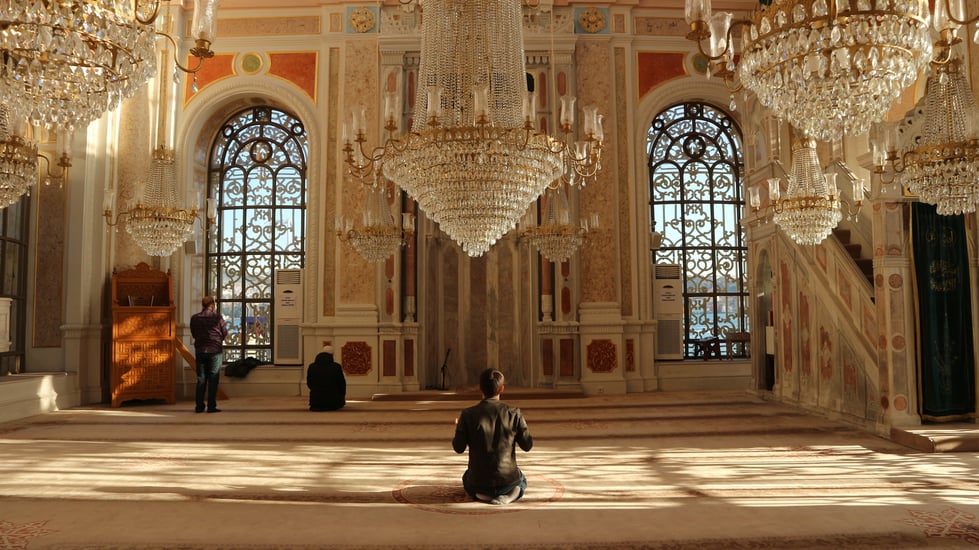Series: Heritage and Our Sustainable Future
Issue 7; 18th November 2021
Brief reports are released throughout the year. Check out the complete* series below!
*subject to release date
ISSN 2752-7026
01
1Heritage constitutes a unique and sustainable resource for strengthening local livelihoods, improving people’s quality of life and creating prosperity.
Heritage can be a driver for promoting sustainable tourism and generating new economic activities – from arts, crafts and creative industries to sustainable fishing, organic farming and agriculture – while also stimulating solidarity and empowering marginalised and disenfranchised groups.
2The involvement of local communities – often excluded from the benefits arising from Western models of tourism – is key to the long-term success of heritage- led projects.
Local communities are exceptional custodians of traditional knowledge, practices and know-how for both long-term heritage conservation and the creation and perpetuation of sustainable livelihoods. However, they are often excluded from externally driven development approaches.

02
1Heritage constitutes a unique and sustainable resource for strengthening local livelihoods, improving people’s quality of life and creating prosperity.
2The involvement of local communities – often excluded from the benefits arising from Western models of tourism – is key to the long-term success of heritage-led projects.

03
POVERTY
SOCIAL INEQUALITIES
UNEQUAL INCOME DISTRIBUTION
UNSUSTAINABLE TOURISM
COVID-19 PANDEMIC AND TRAVEL RESTRICTIONS
NEO-COLONIAL DIMENSION OF TOURISM AND CREATIVE INDUSTRIES

04
MUCH to Discover in Mida Creek aimed at creating community resilience and sustainable development through local maritime cultural heritage, focusing on a local women’s group. Women here are confined to domestic work, with no active role in economic development, resulting in marginalisation and poverty. One key challenge was to create diverse sustainable pathways to inclusive economic growth for communities mainly dependent on unsustainable fisheries, forestry and tourism. Researchers and stakeholders worked together to increase community awareness on the local fragile maritime heritage and foster sustainable development, using the Mida Creek landscape as a living historical baseline for the long-term protection of these resources. The team employed research and community science to co-produce alternative livelihoods, making marine cultural heritage visible and valuable to communities previously excluded from the benefits generated by marine and coastal tourism. These included butterfly, organic and mangrove farming, beekeeping, sustainable fishing practices, a dhow house restaurant and ecotourism circuits. The project founded the Mida Creek Ecotour and a community-maintained digital platform telling the story of the sea and forest and promoting tourism and community creative industries locally. Impacts include the creation of self-managed industries, economic empowerment of a marginalised community, improved environmental sustainability, and climate change mitigation and adaptation.
Mr Caesar Bita, Underwater and Marine Cultural Research Scientist, National Museums of Kenya, and Dr. Wes Forsythe, Lecturer, Ulster University, UK.
The Medina of Tunis, a World Heritage site since 1979, is home to more than 20 crafts and 524 artisan workshops. However, several historical buildings need restoration and repurposing, and many handicraft activities are currently struggling. The project aimed to revive the architectural and artistic heritage of Dar Ben Gacem, a 16th century building in the Medina, diversifying its uses and supporting local social and economic development. It was transformed into a guesthouse and social enterprise, with all profits reinvested in heritage revival, advocacy and support to local economic and community development. Examples include: restoring historical buildings; support to youth heritage activists; workshops to upload monument information to Wikipedia, increase heritage awareness and boost local tourism; digitising an archive of Tunisian Andalusian music; and promoting the Kairouani Tunisian script, through workshops, lectures and digitisation. In partnership with other local economic actors, the project founded M’dinti to preserve the historical urban quarter and push against gentrification and decay. Through strengthening the network with other guest houses, cafes, restaurants, artisans and young designers and increasing our voice and visibility, the project aimed to foster a shared circular economy, youth inclusion, cultural and tourism activities to improve livelihoods and economic dynamics, and private-public partnership to revive historical public buildings.
Ms Leila Ben-Gacem, Socio-cultural Entrepreneur, Tunisia.
The Faynan region is a desert landscape between the Wadi Araba and the Jordanian Plateau, home to a Bedouin community. The region is economically deprived, and one of the most impressive archaeological landscapes in South-West Asia. For more than fifty years international archaeologists have undertaken fieldwork, often working with Jordanians, supporting the community by employing workmen and purchasing supplies, but leaving nothing behind – while their careers flourished based on their discoveries. The Faynan Heritage Project, led by the University of Reading and Future Pioneers for Empowering Communities is seeking to redress this imbalance by using cultural heritage to support eco-tourism to directly benefit the local community. Through projects funded by the Arts and Humanities Research Council, Newton-Khalidi Fund and the UK’s Department for Business, Energy, and Industrial Strategy, Faynan Heritage has developed museum displays, constructed heritage walking trails, and produced materials for the local schools. Most significantly, it has established the Faynan Heritage Women’s Cultural Association, a small business enterprise producing high-class handicrafts based on unique Faynan archaeological finds. The project provides training and infrastructure, with a view to creating sustainable businesses, owned, and managed by Faynan women. Success will depend on how quickly tourism returns to Faynan following the COVID-19 pandemic.
Prof Steven Mithen, Professor of Early Prehistory, University of Reading, UK

UK National Commission for UNESCO
[email protected]
Prof Stuart Taberner, Director of the Frontiers Institute, and Principal Investigator at PRAXIS, University of Leeds, UK
Dr Francesca Giliberto, Post-Doctoral Research Fellow on Heritage for Global Challenges at PRAXIS, University of Leeds, UK.
Helen Maclagan OBE, Former Vice-Chair and Non-Executive Director, UK National Commission for UNESCO; Dr Esther Dusabe-Richards, Post-Doctoral Research Fellow at PRAXIS, University of Leeds, UK.
Matilda Clark, Project Officer, UK National Commission for UNESCO; Matthew Rabagliati, Head of Policy, Research and Communications, UK National Commission for UNESCO.
Prof Steven Mithen, Professor of Early Prehistory, University of Reading, UK; Mr Caesar Bita, Underwater and Marine Cultural Research Scientist, National Museums of Kenya, and Dr. Wes Forsythe, Lecturer, Ulster University, UK; Ms Leila Ben-Gacem, Socio-cultural Entrepreneur, Tunisia.